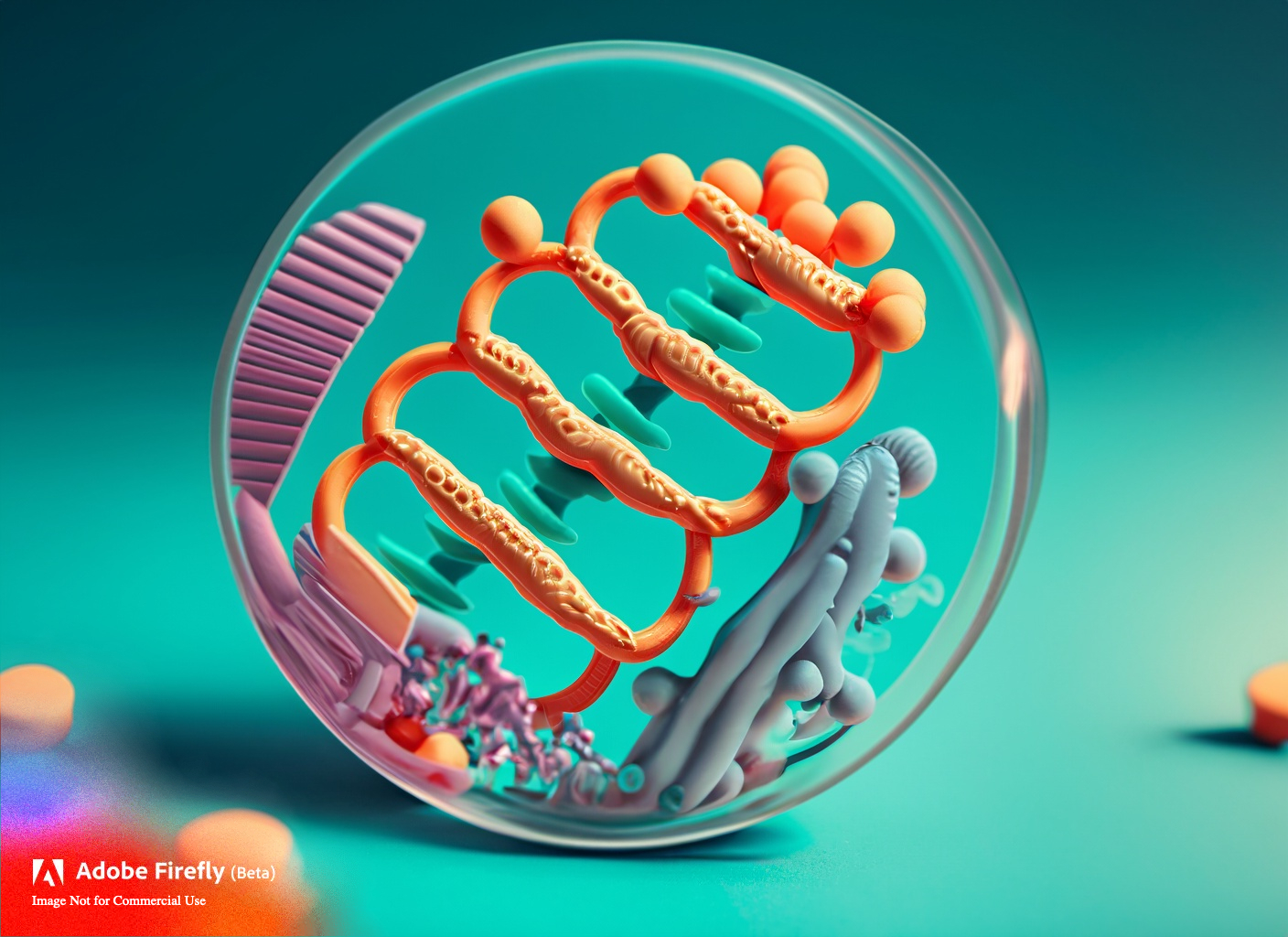Ethics of Genetic Therapies
How do different stakeholders think about gene editing and the potential social and ethical implications?
For many years, scientists have been trying to develop medical treatments that could ‘correct’ genes that led to inherited conditions. In general these are called gene therapies, and more recently they use a new technique called gene editing. These treatments could be used on people of any age (called somatic gene therapy), and also could theoretically be used on eggs/sperm or embryos (called germline gene therapy) or on developing babies during a pregnancy (called prenatal gene editing).

While gene editing is not happening in Switzerland (as of 2023), there are many clinical trial studies happening around the world and several hundred people have had somatic gene editing for a handful of different inherited conditions. While gene therapies and gene editing treatments could be a very exciting way to treat inherited conditions that previously did not have any treatment, or did not have an effective treatment, there are also some social and ethical implications to think about.
Want to learn more about attitudes towards gene editing? Here are some links to our prior publications:
- external page call_made KE Ormond and D Mortlock and DT Scholes; Y Bombard, L Brody, WA Faucett, NA Garrison, L Hercher, R Isasi, A Middleton, K Musunuru, D Shriner, A Virani, C Young. (2017) ASHG Policy Statement on Human Germline Genome Editing. Am J Hum Genet. 2017 Aug 3;101(2):167-176
- external page call_made Alysse M, Bombard Y, Isasi R, Michie M, Musunuru K, Ormond KE. (2019) What do we do now?: Responding to claims of germline gene editing in humans. Genet Med. Genet Med. 10):2181-2183. Published online 2019 Mar 27.
- external page call_made Ormond KE, Bombard Y, Bonham VL, Hoffman-Andrews L, Howard H, Isasi R, Musunuru K, Riggan KA, Michie M, Alysse M. (2019) The clinical application of genome editing: ethical and social issues (solicited commentary). Personalized Medicine. 2019 Jul;16(4):337-350. Published online July 23, 2019.
- external page call_made Hoffman-Andrews L, Mazzoni R, Pacione M, Garland-Thomson R, Ormond KE. (2019) Attitudes of people with inherited retinal conditions toward gene editing technology. Molecular Genetics and Genomic Medicine, 7(7):e00803. Published online, 13 June, 2019.
- external page call_made Snure E, Deuitch N, Michie M, Riggan KA, Allyse MA, Ormond KE. (2019) Attitudes Towards Hypothetical Gene Editing Technologies in Parents of People with Autosomal Aneuploidies. Published online October 11, 2019. CRISPR Journal. 2(5):324-330
- external page call_made Armsby AJ, Bombard Y, Garrison NA, Halpern-Felsher BL, Ormond KE. (2019) International Attitudes of Genetics Professionals Toward Human Gene Editing. Published online October 11, 2019. CRISPR Journal 2(5):331-339.
- external page call_made Hollister BM, Gatter MC, Abdallah K, Armsby A, Buscetta AJ, Byeon J, Cooper KE, Desine S, Persaud A, Ormond KE, Bonham VL. (2019) Perspectives of sickle cell disease stakeholders on heritable genome editing. CRISPR Journal. 2019 Dec;2(6):441-449. Published online 2019 Nov 19.
- external page call_made Blasimme, A., Caminiti, D., & Vayena, E. (2020). The Regulation of Human Germline Genome Modification in Switzerland. In A. Boggio, C. Romano, & J. Almqvist (Eds.), Human Germline Genome Modification and the Right to Science: A Comparative Study of National Laws and Policies (pp. 409-438). Cambridge: Cambridge University Press. doi:10.1017/9781108759083.016
- external page call_made Booth A, Bonham V, Porteus M, Ormond KE. (2021) Treatment Decision-Making in Sickle Cell Disease Patients. Published online November 4, 2021. J Community Genetics. 13:143-151. doi: 10.1007/s12687-021-00562-z Correction published Feb 2022:
- external page call_made Elliott KE, Ahlwat N, Beckman ES, Ormond KE. "I wouldn't want anything that would change who he is." The Relationship Between Perception of Identity and Attitudes Towards Hypothetical Gene-Editing in Parents of Children with Autosomal Aneuploidies.” Epub 2022 Aug 26. Social Science in Medicine – Qualitative Research in Health, 2 (2022) 100151
- external page call_made Allyse MA, Meagher K, Michie M, Isasi R, Ormond KE, Bonhomme N, Bombard Y, Musunuru K, Riggan KA, Rubeck S (2023) Translational Justice in Human Gene Editing: Bringing end user engagement and policy together. Open Peer commentary. Am J Bioethics. Published online June 20, 2023
Articles
“How genome editing will change humanity”. Live Interview, Economist Babbage Podcast, March 9, 2023. external page https://www.economist.com/human-genome-editing-pod
“Human gene editing: Promise and Peril”. Live interview, BBC World Service, March 9, 2023. external page https://www.bbc.co.uk/programmes/w3ct36bg
Presentations
Presentation from the 3rd International Gene Editing Summit (London UK, March 2023) --from approximately 2:38:30 until 2:51:20: external page https://www.youtube.com/watch?v=zZklzrd5seU&list=PLg7f-TkW11iXEvtH5uchUBtF1FRpoVjhU&index=1
In German:
- CRISPR-Cas einfach erklärt | Gentechnik | CrisprCas9 by BIOBYLUKE external page https://www.youtube.com/watch?v=4abtcn2pVzY
- CRISPR in 4 Minuten erklärt by youknow external page https://www.youtube.com/watch?v=gUa2H8CcUjU
- CRISPR-Cas9 – Biochemie / Molekularbiologie – AMBOSS Video by AMBOSS DE external page https://www.youtube.com/watch?v=R3WqGir9grQ
- CRISPR-Cas / CRISPR Cas9 [Ein Verfahren des Genom-editing] – [Biologie, Gentechnik, Oberstufe] by TeacherToby external page https://www.youtube.com/watch?v=6Fc4ajA7ft8
In French:
- CRISPR/CAS9 : une méthode révolutionnaire by Inserm external page https://www.youtube.com/watch?v=RplWR12npqM
- Comment fonctionnent les ciseaux moléculaires ? | Le tour de la question by La Croix external page https://www.youtube.com/watch?v=NBpKWMyWHE4
- Notre génome manipulé ? La révolution Crispr expliquée by Le Monde external page https://www.youtube.com/watch?v=4MiN_QNXS78&t=33s
- CRISPR Cas9 : Définitions, Principe et Applications | PRIX NOBEL DE CHIMIE 2020 by Biochimie Facile external page https://www.youtube.com/watch?v=lW64Y18tbUQ
In English:
- Genome Editing with CRISPR-Cas9 by McGovern Institute external page https://www.youtube.com/watch?v=2pp17E4E-O8
- How CRISPR lets you edit DNA – Andrea M. Henle by TED-Ed external page https://www.youtube.com/watch?v=6tw_JVz_IEc
- What is gene editing and how does it work? | The Royal Society by The Royal Society external page https://www.youtube.com/watch?v=XPDb8tqgfjY
- Gene Editing by ASGCT external page https://www.youtube.com/watch?v=i_1kLfK1cP0
- The Wellcome trust: external page https://wellcome.org/news/what-genome-editing-and-how-does-it-work
- The Australian Academy of Sciences: external page https://www.science.org.au/curious/crispr
Reports on genome editing from international and non-governmental agencies:
- European Commission and Directorate-General for Research and Innovation, EGE Opinion on the Ethics of Genome Editing (2021) external page https://op.europa.eu/publication/manifestation_identifier/PUB_KI0121062ENN
- World Health Organization, Human Genome Editing: A Framework for Governance (World Health Organization, 2021) external page https://apps.who.int/iris/handle/10665/342484
- Nuffield Council on Bioethics: external page https://www.nuffieldbioethics.org/publications/genome-editing-and-human-reproduction
- US National Academies of Sciences, Engineering and Medicine: external page https://www.nap.edu/catalog/25665/heritable-human-genome-editing